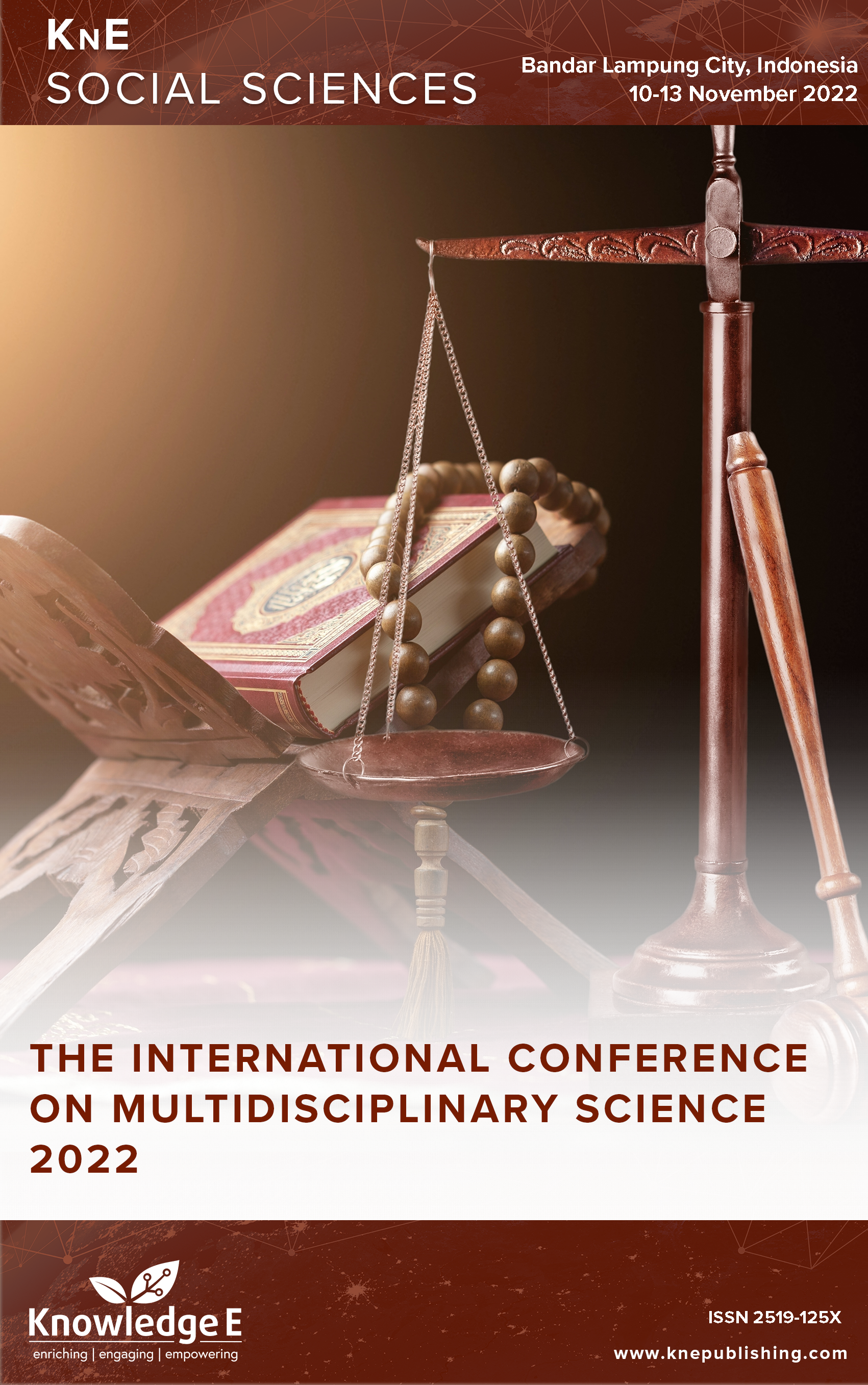A Study of Human Resources Planning at a Private Madrasah School in Lampung
DOI:
https://doi.org/10.18502/kss.v8i16.14061Abstract
This study aims to identify and reveal human resource planning in MTs (Wali Songo, al- Muhajirin, and Nurul Huda Madukoro, North Lampung). It uses an interpretive paradigm with a qualitative-descriptive method. While the approach used is phenomenologicalnaturalistic, the techniques used in data collection are in-depth interviews, participant observation, and document studies. In this study, the interview material was adjusted to the research focus through the following steps: 1) determining the person to be interviewed, 2) preparing questions that will be the subject of discussion, 3) initiating and opening the direction of the conversation, 4) conducting interviews, 5) recording or recording the results of the interview, 6) communicating the results of the interview, 7) copying the interview results into notes by making a selection. Observations were made using participant observation, where the researcher was directly involved with the activities of the object being studied. Document studies are used to strengthen data from interviews and observations. The results show the implementation of human resource planning in MTs with a closed and open planning system. Careful planning of human resources is the spearhead for the success of education, especially in madrasa schools.
Keywords: Education in Indonesia, Human Resources, Madrasah
References
[2] Arif M. Konsep Pendidikan Islam Berdasarkan Al-quran Al-karim. ANSIRU PAI: Pengembangan Profesi Guru Pendidikan Agama Islam. 2018;2(1):20–35.
[3] Bandur A, Hamsal M, Furinto A. 21st Century experiences in the development of school-based management policy and practices in Indonesia. Educ Res Policy Pract. 2022;21(1):85–107.
[4] Elvira E. Faktor Penyebab Rendahnya Kualitas Pendidikan dan Cara Mengatasinya (Studi pada: Sekolah Dasar di Desa Tonggolobibi). IQRA Jurnal Ilmu Kependidikan Dan Keislaman. 2021;16(2):93–8.
[5] Hartini S. Kompetensi profesional guru dalam meningkatkan motif berprestasi peserta didik: Studi di SDN Karangpucung 04 dan SDN Karangpucung 05 Kabupaten Cilacap. Indonesian Journal of Education Management & Administration Review. 2019;3(1):71–6.
[6] Helda H, Syahrani S. National Standards of Education in Contents Standards and Education Process Standards in Indonesia [INJOE]. Indonesian Journal of Education. 2022;3(2):257–69.
[7] Hickel J. The sustainable development index: measuring the ecological efficiency of human development in the anthropocene. Ecol Econ. 2020;167:106331.
[8] Jackson D, Bridgstock R. Evidencing student success in the contemporary world-ofwork: renewing our thinking. High Educ Res Dev. 2018;37(5):984–98.
[9] Kirom A, Imamiyah I. Pendidikan Madrasah di Indonesia dalam Potret Waktu: Studi atas Sejarah Perkembangan Madrasah di Indonesia. Maharot: Journal of Islamic Education. 2021;5(2):103–20.
[10] Maltese G. Islam Is Not a “Religion”–Global Religious History and Early Twentieth- Century Debates in British Malaya. Method Theory Study Relig. 2021;33(3–4):345– 80.
[11] Margot KC, Kettler T. Teachers’ perception of STEM integration and education: a systematic literature review. Int J STEM Educ. 2019;6(1):1–16.
[12] Nurdin Batjo SP, Shaleh M. Manajemen Sumber Daya Manusia. Penerbit Aksara Timur; 2018.
[13] Paramansyah HA, SE M. M, Husna A. I. N., & Sos S. Manajemen Sumber Daya Manusia Dalam Perspektif Islam. Almuqsith Pustaka. 2021.
[14] Rahmanniyay F, Yu AJ. A multi-objective stochastic programming model for project-oriented human-resource management optimization. International Journal of Management Science and Engineering Management. 2019;14(4):231–9.
[15] Stachová K, Papula J, Stacho Z, Kohnová L. External partnerships in employee education and development as the key to facing industry 4.0 challenges. Sustainability (Basel). 2019;11(2):345.
[16] Susanto NH, Lestari C. Problematika Pendidikan Islam di Indonesia: Eksplorasi Teori Motivasi Abraham Maslow dan David McClelland. Edukasia Islamika. 2018:184–202.
[17] Usiono R. W. Evaluasi Peningkatan Mutu Sekolah Melalui Pengembangan Profesionalisme Guru. Cybernetics: Journal Educational Research and Social Studies. 2021:55–65.

